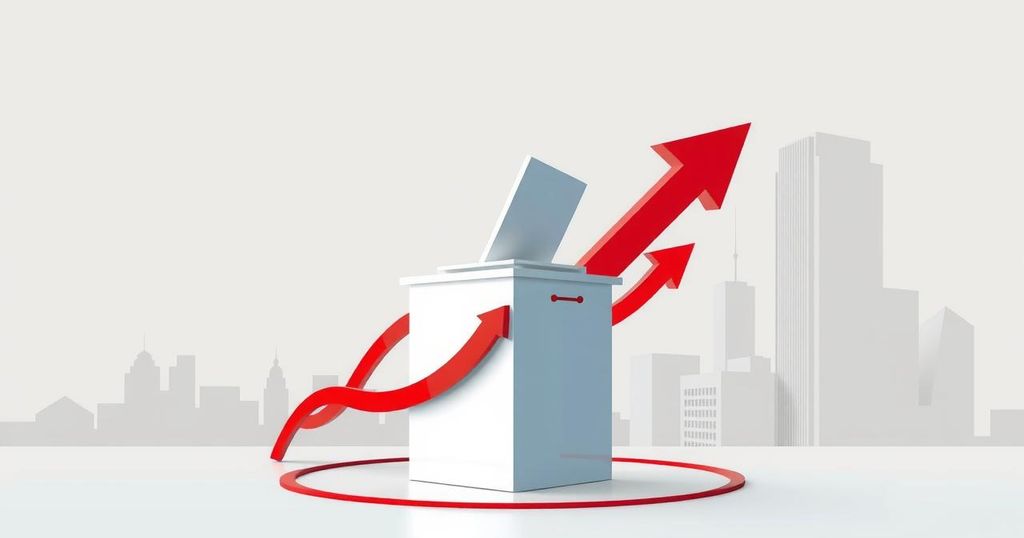Upcoming German Federal Election: Key Dynamics and Political Landscape

Germans will vote on February 23 after Chancellor Scholz’s government collapse. State elections showed a surge in support for the AfD, which won in Thuringia and poses a challenge to the ruling Social Democrats. Security concerns are heightened due to a recent tragedy, intensifying the political stakes leading into the election.
On February 23, Germans will cast their votes in a federal election after Chancellor Olaf Scholz’s three-party coalition government disbanded in November. Recent state elections have revealed rising support for the far-right Alternative for Germany (AfD), particularly in Brandenburg, where Scholz’s Social Democrats narrowly maintained their position against the AfD. The party, however, achieved significant success in the eastern state of Thuringia on September 1.
Current projections show the following seat distribution in the upcoming elections: the Christian Democratic Union (CDU) holds 30% with 29 seats, AfD at 15.9% with 14 seats, and the Social Democrats (SPD) also at 13.9% with 14 seats. Additionally, the Greens hold 11.9% with 12 seats. Other parties include Sahra Wagenknecht’s faction with 6.2%, the Free Democrats (FDP) with 5.2%, and several smaller parties.
In light of these developments, reports concerning alleged ties to violence during the election campaigns have emerged, raising important questions about security in Germany. Notable businessman Elon Musk has commented on the situation, calling Chancellor Scholz an “incompetent fool” in reference to a tragic incident at a Christmas market. The upcoming elections have heightened public concerns regarding safety and political stability.
With the AfD gaining momentum, there are staunch proponents who believe the party is positioned as a key player in restoring order in Germany. Notably, an ally of former President Donald Trump has asserted, “Only the AfD can save Germany.” This statement encapsulates the growing influence of the AfD amidst the political turmoil and the urgency voters feel as the election approaches.
The upcoming German federal election on February 23 has become a focal point following the disintegration of Chancellor Olaf Scholz’s government. The political climate has shifted dramatically with a noted increase in support for the Alternative for Germany party. Events at recent state elections reflect broader societal concerns, particularly surrounding issues of governance, safety, and the response to rising extremism in the nation.
The February 23 federal election marks a critical moment in German politics as various parties, especially the AfD, capitalize on rising concerns about security and governance. With the collapse of Scholz’s coalition government, voter sentiments will likely shape the direction of the nation. The dynamics of the upcoming election underscore the urgency for clarity and stability in the political landscape.
Original Source: www.politico.eu







